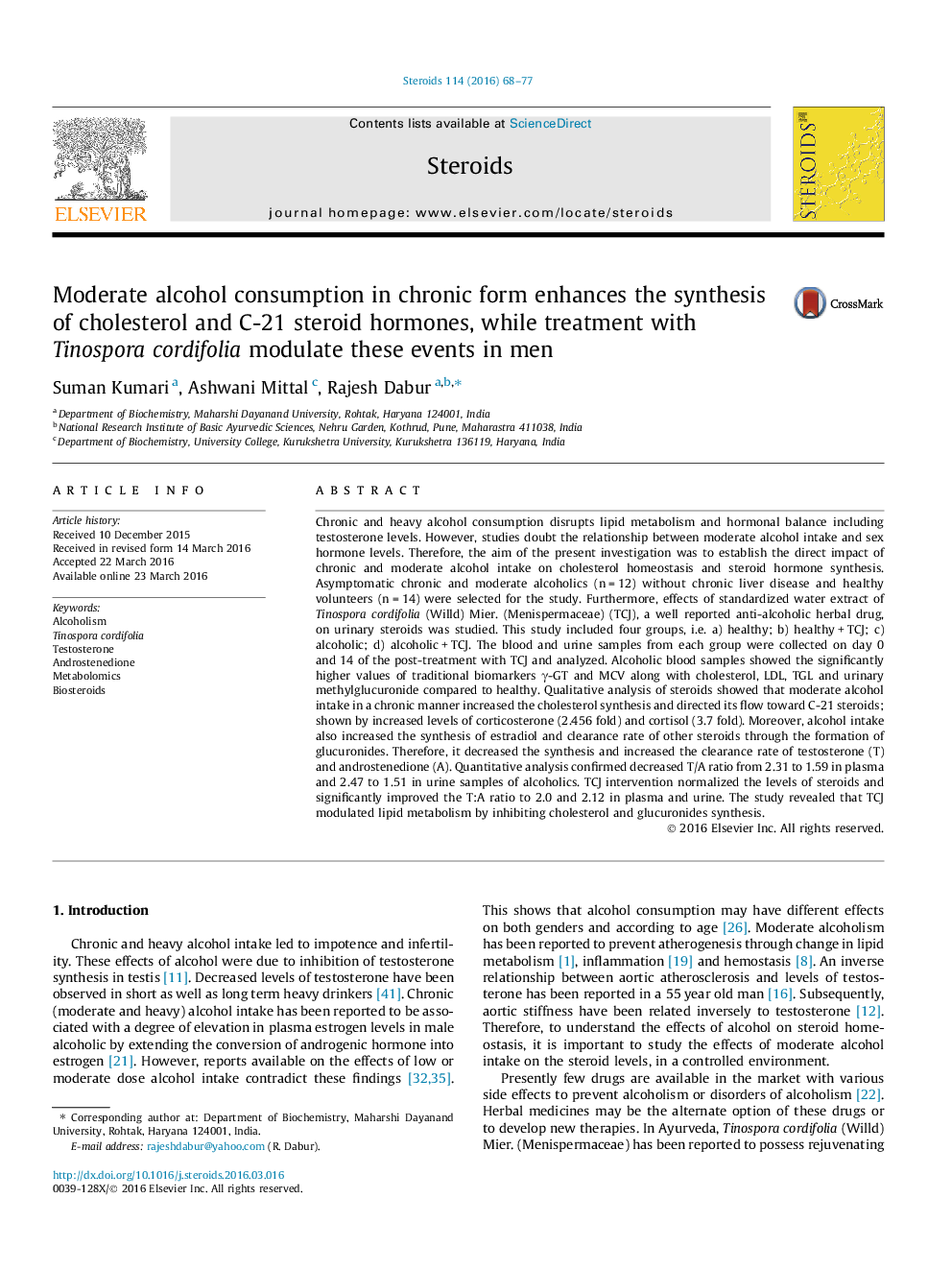| Article ID | Journal | Published Year | Pages | File Type |
|---|---|---|---|---|
| 5516739 | Steroids | 2016 | 10 Pages |
â¢Moderate alcohol consumption increase the synthesis of C-21 steroids.â¢It decreased the synthesis of C-19 steroids and don't affect C-18 steroids.â¢Alcohol also increased rate of steroid hormones clearance.â¢It increased estradiol production and decreases testosterone levels.â¢T. cordifolia inhibit statin pathway, and suppress alcohol metabolism.
Chronic and heavy alcohol consumption disrupts lipid metabolism and hormonal balance including testosterone levels. However, studies doubt the relationship between moderate alcohol intake and sex hormone levels. Therefore, the aim of the present investigation was to establish the direct impact of chronic and moderate alcohol intake on cholesterol homeostasis and steroid hormone synthesis. Asymptomatic chronic and moderate alcoholics (n = 12) without chronic liver disease and healthy volunteers (n = 14) were selected for the study. Furthermore, effects of standardized water extract of Tinospora cordifolia (Willd) Mier. (Menispermaceae) (TCJ), a well reported anti-alcoholic herbal drug, on urinary steroids was studied. This study included four groups, i.e. a) healthy; b) healthy + TCJ; c) alcoholic; d) alcoholic + TCJ. The blood and urine samples from each group were collected on day 0 and 14 of the post-treatment with TCJ and analyzed. Alcoholic blood samples showed the significantly higher values of traditional biomarkers γ-GT and MCV along with cholesterol, LDL, TGL and urinary methylglucuronide compared to healthy. Qualitative analysis of steroids showed that moderate alcohol intake in a chronic manner increased the cholesterol synthesis and directed its flow toward C-21 steroids; shown by increased levels of corticosterone (2.456 fold) and cortisol (3.7 fold). Moreover, alcohol intake also increased the synthesis of estradiol and clearance rate of other steroids through the formation of glucuronides. Therefore, it decreased the synthesis and increased the clearance rate of testosterone (T) and androstenedione (A). Quantitative analysis confirmed decreased T/A ratio from 2.31 to 1.59 in plasma and 2.47 to 1.51 in urine samples of alcoholics. TCJ intervention normalized the levels of steroids and significantly improved the T:A ratio to 2.0 and 2.12 in plasma and urine. The study revealed that TCJ modulated lipid metabolism by inhibiting cholesterol and glucuronides synthesis.
